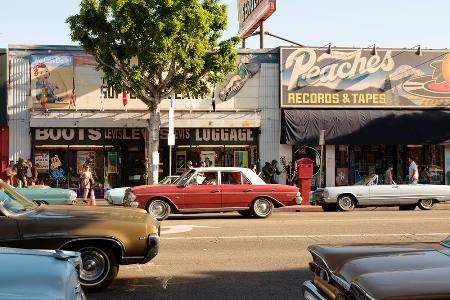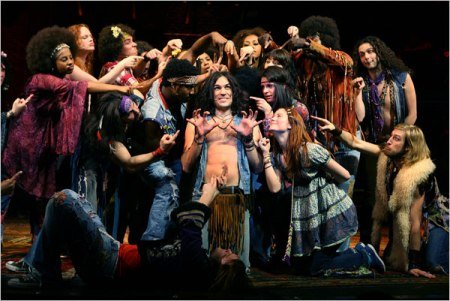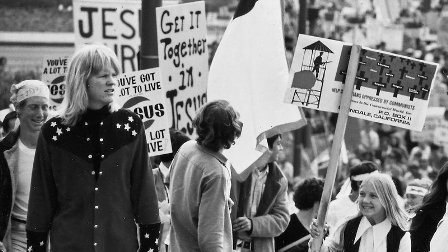Hollywood Street Ministry
Soon after Norman left People!, he had “a powerful spiritual encounter that threw him into a frenzy of indecision about his life [and] for the first time in his life, he received what he understood to be the Holy Spirit”.
In July 1968, following a job offer to write musicals for Capitol Records, Norman moved to Los Angeles, where he “spent time sharing the gospel on the streets”. As he described in 2006: “I walked up and down Hollywood Boulevard several times a day … witnessing to businessmen and hippies, and to whomever the Spirit led me. I spent all of my Capitol Records’ royalties starting a halfway house and buying clothes and food for new converts.” He was initially associated with the First Presbyterian Church of Hollywood, and its Salt Company coffee shop outreach ministry, where he explored and pioneered the rock-gospel genre.

Musical Theater
In 1968 Norman wrote several songs for the rock musicals Alison and Birthday for Shakespeare, both of which were performed in Los Angeles.

The next year, Norman and his friend Teddy Neeley auditioned for the Los Angeles production of the rock musical Hair and were offered the roles of George Berger and Claude Bukowski, respectively; Neeley accepted, but Norman rejected the role of George, despite his own financial struggles, because “of its glorification of drugs and free sex as the answers to today’s problems”. Also in 1969, Norman wrote a musical called Love on Haight Street and a rock opera called Lion’s Breath, which led Capitol to re-sign Norman to record an album, with the promise of complete creative control.
Recording career
In 1969, Capitol Records released Norman’s first solo album, Upon This Rock, produced by Hal Yoergler, is now considered to be “the first full-blown Christian rock album”. Norman was denounced by various television evangelists, and Capitol deemed the album a commercial flop and dropped Norman from the label. However, his music gained a large following in the emerging countercultural movements. Sales of the album rose following its distribution in Christian bookstores.
